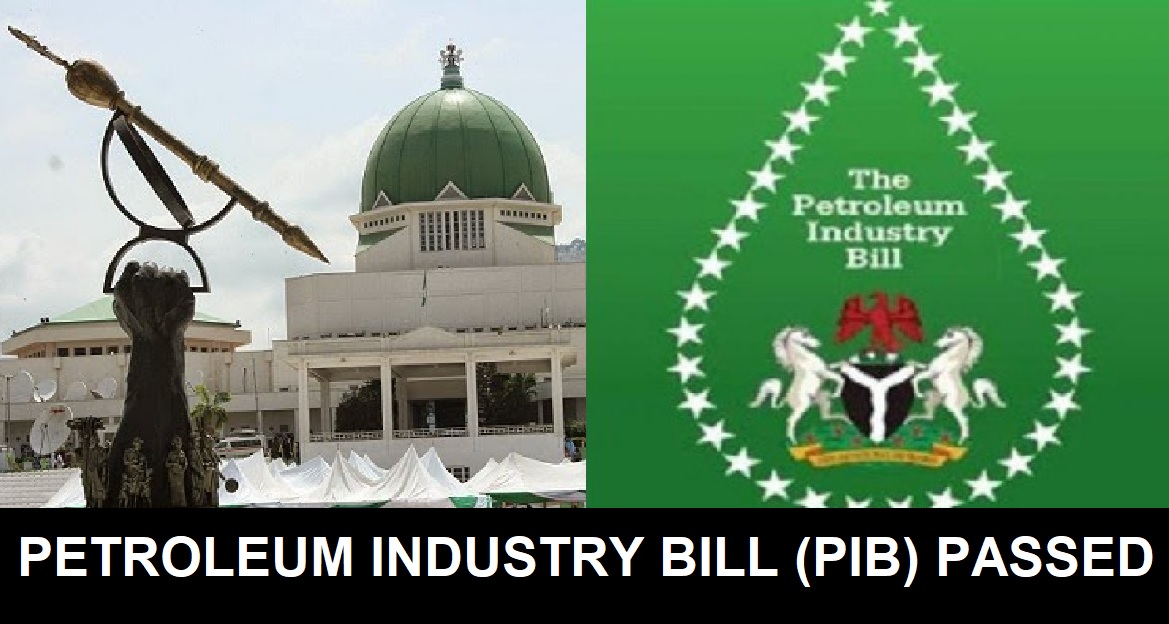Twelve (12) Years after it was first conceptualized, the National Assembly which comprises the Senate and House of Representatives has finally passed the long-awaited Petroleum Industry Bill.
Naijabusiness.com.ng gathered that the House of Representatives were the first to pass the bill for third reading earlier today. Confirming this, the Chairman of the House Ad hoc Committee on the PIB, Rep. Mohammed Tahir Mongunu said: ‘’That the House do consider the Report of the Ahoc Committee on Petroleum Industry Bill on an Act to Provide Legal, Governance, Regulatory and Fiscal Framework for the Nigerian Petroleum Industry, the Development of Host Communities; and for Related Matters, 2021 (HB. 1061) and approve the recommendations therein.”
Following suit, the Senate in its plenary session held today also passed the PIB. The senate held a meeting with the Group Managing Director of the Nigerian National Petroleum Corporation (NNPC), Mele Kyari before passing the Bill. Commenting on this development, an elated Lawan said: ‘’The demons (of PIB) have been defeated in this chamber. We have passed the bill.’’
Naijabusiness.com.ng gathered that the Senate approved 3% for the host communities despite protests from the South-South law makers who advocated for 5%
READ: PIB States the Specific Functions the New Agencies to Replace NNPC
What next?
It is pertinent to note that the second reading is one of the most important stages in the law making process, as bills that scale this stage rarely gets defeated subsequently. In light of this, naijabusiness.com.ng expects law makers to still maintain their stand in the third reading and send the bill to the president for assent (final stage).
This thought were re-echoed by the Senate President, Ahmed Lawan who expressed optimism that the bill will soon be signed into law by the president in coming days ahead.
Recall that the Petroleum Industry Bill has been unceremoniously delayed since it was first conceptualized in 2008. Successive administrations had failed to pass the legislation due to its complexities and divergent interests. However, earlier this year, the Federal Government modified the bill by adding some changes such as the reduction of hydrocarbon tax to 30% for converted leases, from an initial 42.5%.
It is pertinent to note that the PIB is touted as a game changer, the bill is expected to deregulate and overhaul Nigeria’s oil and gas sector.

